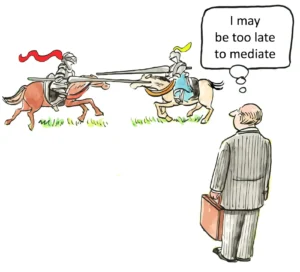Factual vs. Legal Impossibility in Attempt Crimes
The distinction between factual impossibility and legal impossibility in attempt crimes represents a complex and often contentious area of criminal law. This dichotomy plays a crucial role in determining criminal liability when an individual attempts to commit a crime but fails due to circumstances beyond their control or knowledge. The concept of impossibility in criminal attempts challenges courts and legal scholars to grapple with fundamental questions about criminal intent, the limits of criminal liability, and the purposes of punishment in the justice system.
At its core, factual impossibility occurs when external circumstances unknown to the defendant make it impossible to complete the intended crime, despite the defendant’s actions and intentions. For example, if an individual attempts to steal from what they believe to be a full cash register, but the register is empty, this would constitute factual impossibility. The key element here is that the defendant’s actions would have constituted a crime if the circumstances were as they believed them to be.
Legal impossibility, on the other hand, arises when the defendant’s intended acts, even if fully carried out, would not constitute a crime under the law. A classic example is an individual who attempts to receive goods they believe to be stolen, but which are, in fact, not stolen property. In this case, even if the defendant had successfully received the goods, no crime would have been committed because the goods were not actually stolen.
The distinction between these two types of impossibility has significant implications for criminal liability. Generally, factual impossibility is not recognized as a defense to attempt charges, while legal impossibility has traditionally been accepted as a valid defense in many jurisdictions. This difference in treatment stems from the underlying principles of criminal law and the purposes of punishing attempt crimes.
The rationale for punishing attempts, even in cases of factual impossibility, is rooted in the defendant’s criminal intent and the potential danger they pose to society. When an individual takes substantial steps towards committing a crime, they demonstrate a willingness to violate the law and cause harm, regardless of whether external circumstances ultimately prevent the crime’s completion. This approach aligns with the deterrent and retributive functions of criminal law, as it seeks to discourage criminal behavior and hold individuals accountable for their harmful intentions and actions.
Conversely, the traditional acceptance of legal impossibility as a defense reflects the principle that criminal law should not punish individuals for actions that do not violate any legal prohibitions. This view emphasizes the importance of clear legal boundaries and the notion that criminal liability should be based on actual violations of the law, not merely on an individual’s mistaken belief about the legality of their actions.
However, the distinction between factual and legal impossibility is not always clear-cut, and courts have struggled to apply these concepts consistently. Some jurisdictions have moved away from the traditional impossibility doctrine altogether, focusing instead on the defendant’s intent and conduct rather than on the classification of the impossibility.
The Model Penal Code, an influential document in American criminal law, takes a more unified approach to attempt liability. Section 5.01 of the Model Penal Code states that a person is guilty of an attempt if, “acting with the kind of culpability otherwise required for commission of the crime, he purposely engages in conduct that would constitute the crime if the attendant circumstances were as he believes them to be.” This formulation effectively eliminates the distinction between factual and legal impossibility, focusing instead on the defendant’s beliefs and intentions.
The debate surrounding impossibility in attempt crimes extends beyond mere academic discourse, as it has significant practical implications for criminal prosecutions and defenses. Prosecutors must navigate these complex legal principles when charging individuals with attempt crimes, while defense attorneys may seek to leverage impossibility arguments to challenge the validity of attempt charges.
One area where the impossibility doctrine has particular relevance is in the context of sting operations and undercover law enforcement activities. These operations often involve scenarios where the completion of the intended crime is, by design, impossible. For example, in cases involving attempted drug purchases from undercover officers or attempted sexual offenses against fictitious minors, the impossibility of completing the crime is an inherent feature of the law enforcement strategy.
Courts have generally held that such scenarios constitute factual impossibility rather than legal impossibility, allowing for prosecution of attempt crimes in these contexts. This approach recognizes the genuine criminal intent of the defendants and the social harm they seek to cause, even when the specific circumstances of the crime are artificially constructed by law enforcement.
The treatment of impossibility in attempt crimes also intersects with broader discussions about the role of mens rea (criminal intent) in criminal law. The focus on the defendant’s state of mind in attempt cases underscores the importance of mental culpability in determining criminal liability. This emphasis aligns with the principle that criminal punishment should be reserved for those who act with a blameworthy state of mind, rather than merely based on the consequences of their actions.
The impossibility doctrine also raises questions about the appropriate scope of criminal law and the limits of state power. Critics of a broad approach to attempt liability argue that punishing individuals for impossible attempts may extend criminal sanctions too far, potentially infringing on civil liberties and criminalizing mere thoughts or harmless conduct. Proponents of a more expansive view contend that focusing on the defendant’s intent and actions, rather than on the ultimate possibility of success, better serves the goals of public safety and crime prevention.
In recent years, technological advancements have introduced new complexities to the impossibility doctrine. Cybercrime attempts, for instance, may involve scenarios where the impossibility of completing the intended crime is due to technological barriers or security measures unknown to the defendant. Courts have had to grapple with how to apply traditional impossibility principles to these novel contexts, often drawing analogies to more conventional attempt scenarios.
The treatment of impossibility in attempt crimes also varies across different legal systems. While common law jurisdictions have traditionally recognized the distinction between factual and legal impossibility, civil law systems often take a different approach. Some civil law countries focus more on the dangerousness of the defendant’s conduct and intentions, rather than on the specific categorization of the impossibility.
International criminal law presents yet another context where impossibility principles must be considered. In cases involving attempts to commit international crimes, such as genocide or crimes against humanity, the impossibility of completing the crime due to intervention by international forces or other factors may raise complex legal questions about attempt liability in the international sphere.
The impossibility doctrine also intersects with other criminal law concepts, such as mistake of fact and mistake of law. While mistakes of fact generally do not provide a defense to attempt charges (aligning with the treatment of factual impossibility), mistakes of law may sometimes provide a defense (similar to legal impossibility). This interplay highlights the complex relationship between an individual’s understanding of their circumstances and the legal consequences of their actions.
Another important consideration in the context of impossibility and attempt crimes is the role of abandonment or renunciation. Many jurisdictions recognize a defense of voluntary abandonment, where a defendant who voluntarily and completely abandons their criminal purpose before the attempt is completed may avoid liability. The interaction between abandonment principles and impossibility scenarios can create complex legal questions, particularly in cases where the abandonment occurs after the defendant becomes aware of the impossibility of completing the crime.
The impossibility doctrine also raises important questions about the appropriate allocation of law enforcement resources. If attempts that are factually impossible are treated the same as those that have a chance of success, law enforcement agencies may need to devote significant resources to investigating and prosecuting conduct that poses no actual threat of harm. This consideration must be balanced against the deterrent effect of prosecuting such attempts and the potential danger posed by individuals who demonstrate a willingness to engage in criminal conduct.
The treatment of impossibility in attempt crimes also has implications for sentencing practices. Some jurisdictions may consider the degree of impossibility or the reasons for the attempt’s failure as mitigating factors in sentencing, even if impossibility is not recognized as a complete defense. This approach allows for a more nuanced consideration of the defendant’s culpability and the potential harm of their actions.
In the realm of conspiracy law, which is closely related to attempt law, impossibility principles may also come into play. Courts have had to consider whether impossibility affects the validity of conspiracy charges, particularly in cases where the object of the conspiracy is legally impossible to achieve. The resolution of these issues often depends on the specific conspiracy statutes and case law of the jurisdiction in question.
The impossibility doctrine also intersects with broader philosophical questions about free will, determinism, and moral responsibility. The notion that an individual can be held criminally liable for an impossible attempt raises questions about the nature of human agency and the relationship between intentions, actions, and outcomes. These philosophical considerations underpin many of the legal debates surrounding impossibility in criminal law.
In conclusion, the distinction between factual and legal impossibility in attempt crimes remains a complex and evolving area of criminal law. While traditional approaches have treated these categories differently, modern trends in many jurisdictions have moved towards a more unified treatment of attempt liability, focusing on the defendant’s intent and conduct rather than on the specific nature of the impossibility. This shift reflects broader changes in criminal law philosophy, emphasizing the importance of culpability and the prevention of social harm.
As courts continue to grapple with impossibility cases, particularly in the context of new technologies and evolving criminal enterprises, the doctrine is likely to undergo further refinement and adaptation. Legal scholars, practitioners, and policymakers must continue to engage with these issues, balancing the need for effective law enforcement with principles of fairness, individual rights, and the proper limits of criminal liability. The ongoing debate surrounding impossibility in attempt crimes serves as a reminder of the complex interplay between law, morality, and social policy in the criminal justice system.
Website citations:
- https://www.law.cornell.edu/wex/impossibility
- https://www.lawshelf.com/coursewarecontentview/attempt/
- https://scholarlycommons.law.northwestern.edu/cgi/viewcontent.cgi?article=6666&context=jclc
- https://www.bc.edu/content/dam/bc1/schools/law/admission/jdprogram/admitted-students/Koh%20-%20Crim%20Law%20-%20Reading%20for%20Feb%2028.pdf
- https://opencasebook.org/casebooks/981-balloberman-crim-law-casebook/resources/7.1.24-notes-and-questions-legal-impossibility/
- https://www.colorado-criminal-lawyer-online.com/the-impossible-defense-of-impossibility-in-colorado/
- https://casetext.com/case/people-v-thousand-7
- https://www.casemine.com/commentary/us/legal-and-factual-impossibility-in-criminal-attempts:-insights-from-united-states-v.-oviedo/view
- https://opencasebook.org/casebooks/11268-criminal-law-casebook/resources/7.1.19-notes-and-questions-impossibility/
- https://scholar.smu.edu/cgi/viewcontent.cgi?article=4194&context=smulr
- https://www.supremecourt.gov/opinions/23pdf/22-451_7m58.pdf
- https://scholarlycommons.law.northwestern.edu/cgi/viewcontent.cgi?article=5979&context=jclc
- https://digitalcommons.law.lsu.edu/cgi/viewcontent.cgi?article=3384&context=lalrev
- https://en.wikipedia.org/wiki/State_v._Mitchell
- https://www.reddit.com/r/barexam/comments/151ahdb/legal_impossibility_versus_factual_impossibility/




















